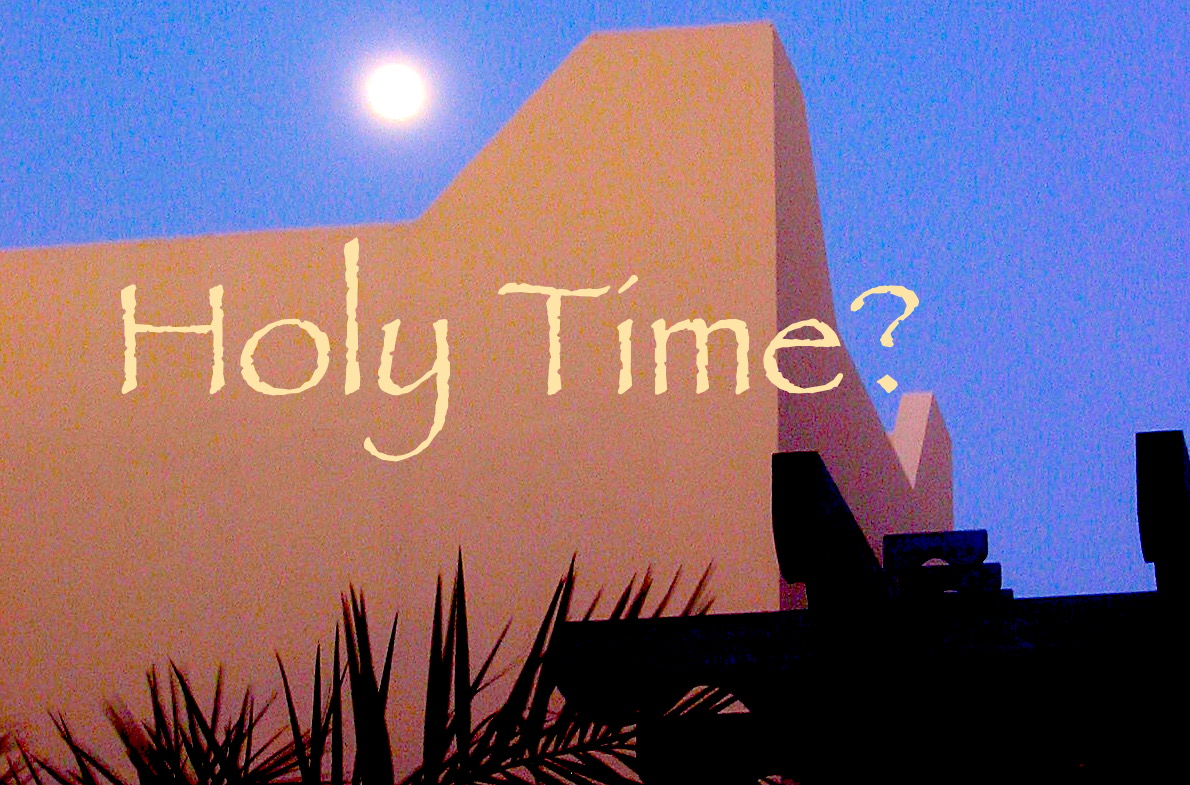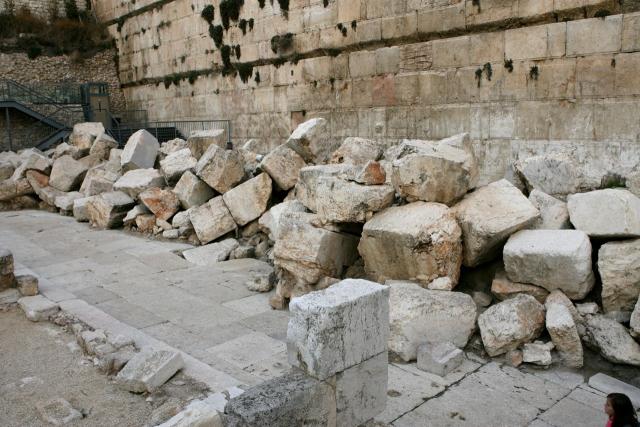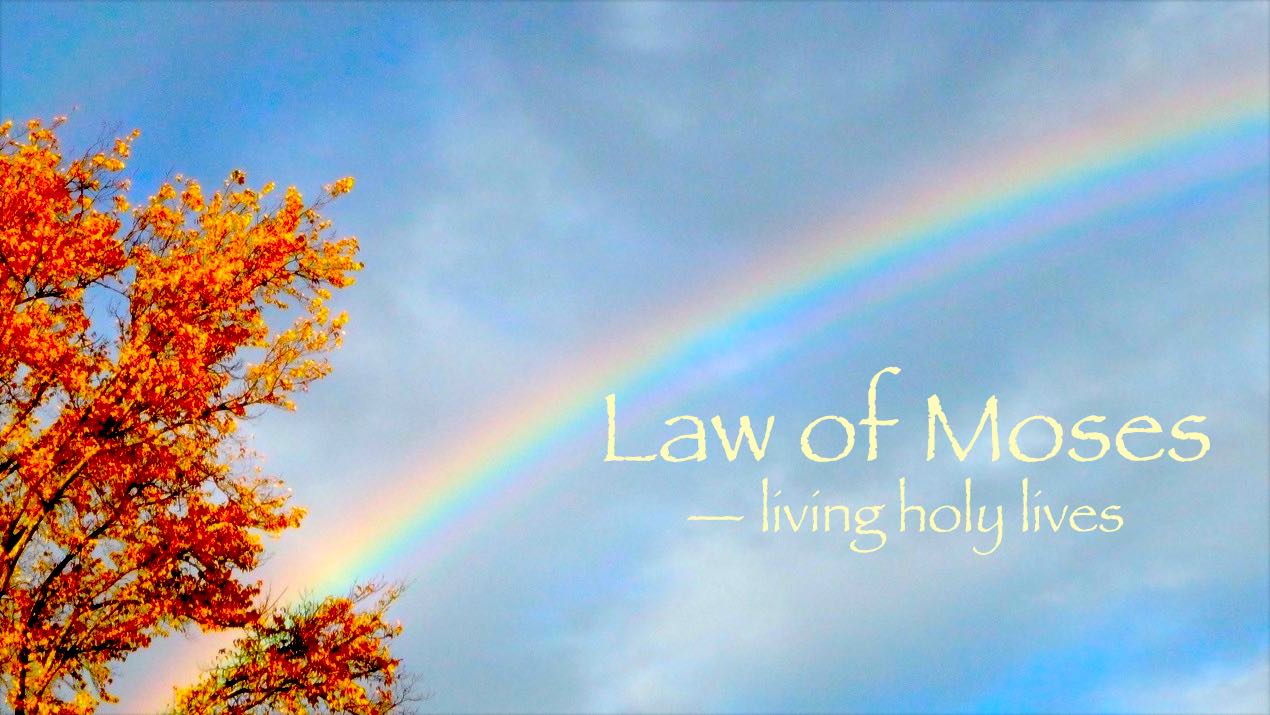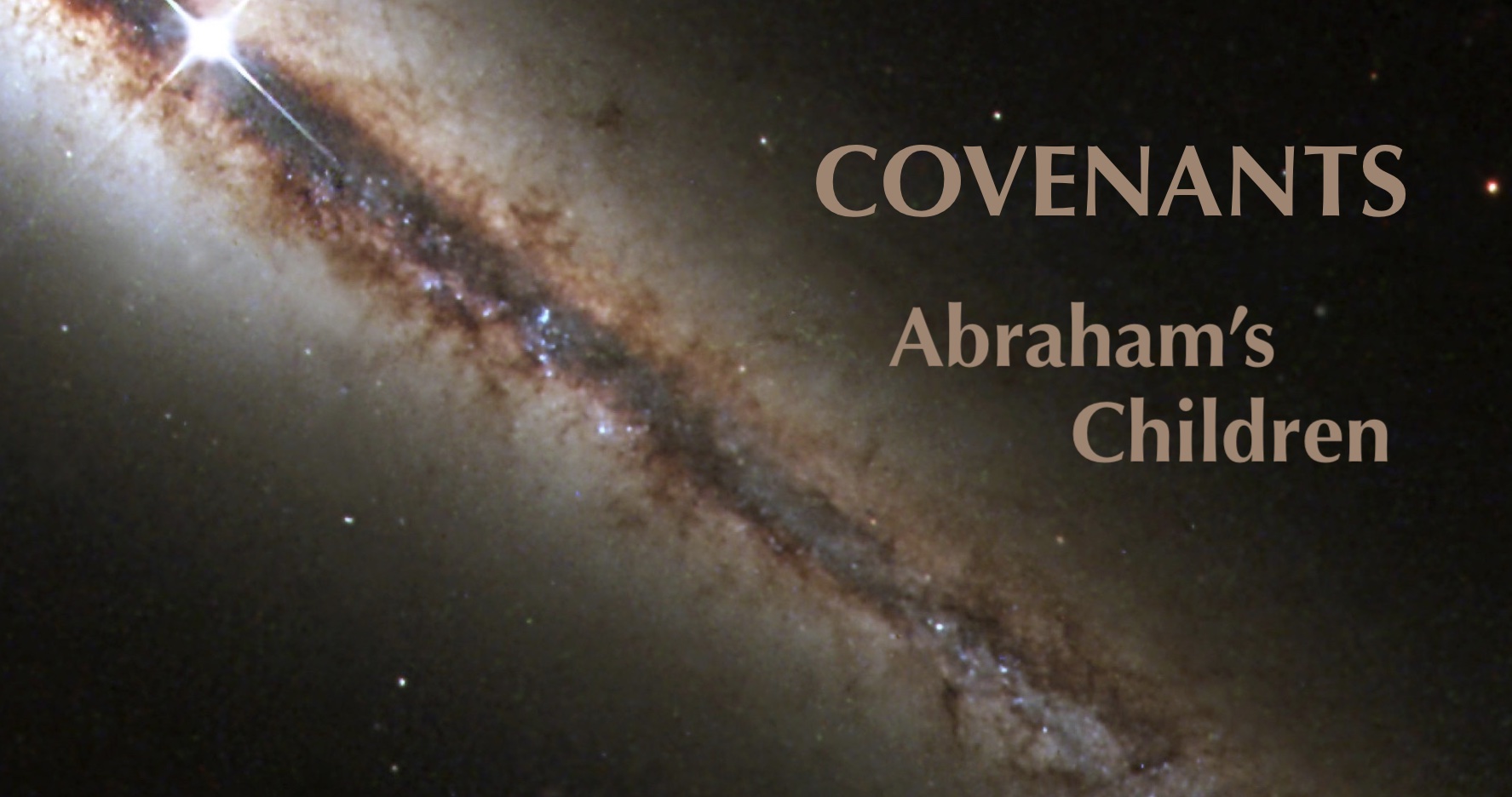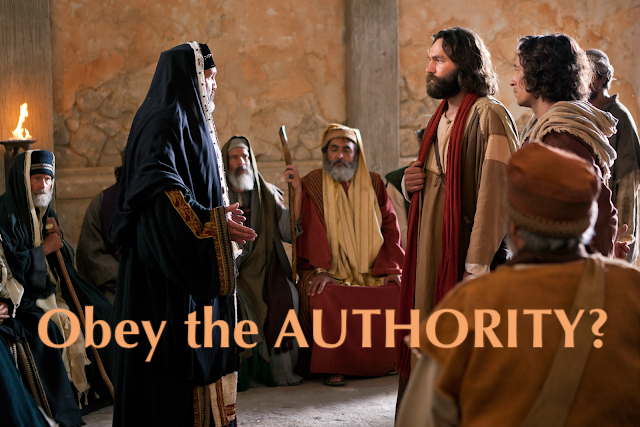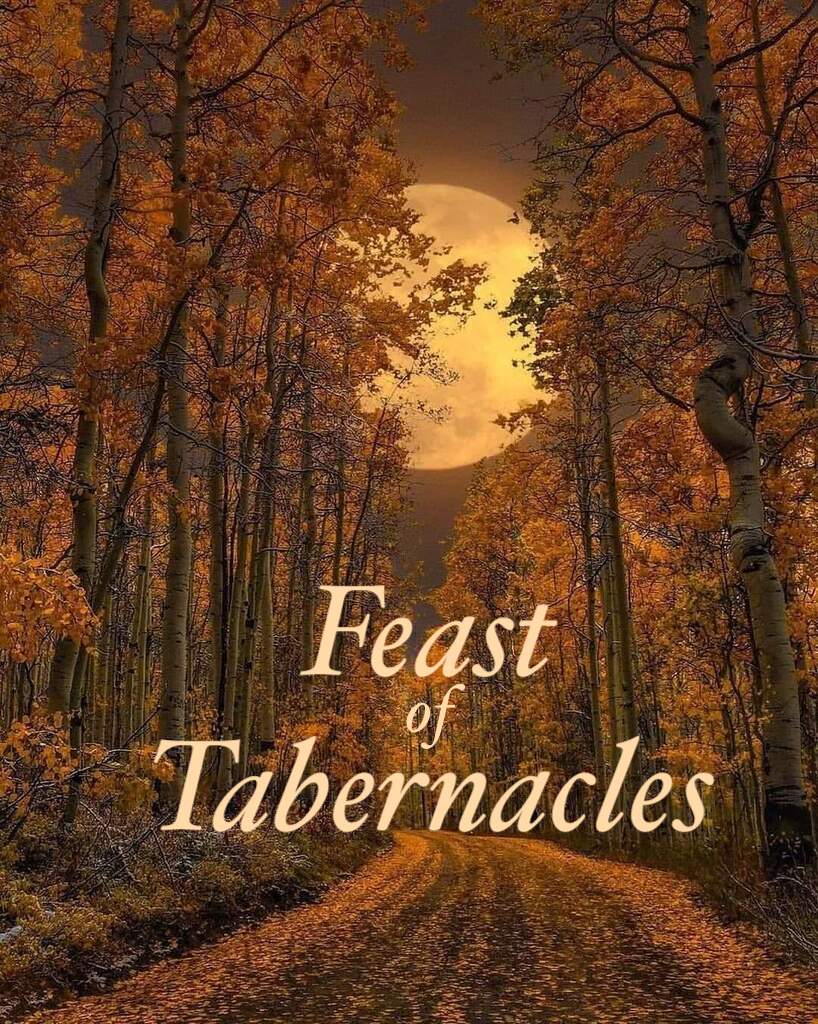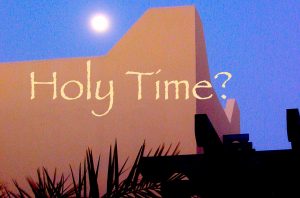 What is old is new, Some questions do not change, and some answers remain the same. If you are concerned with keeping your life in tune with the biblical narrative, then it is time to thoughtfully reconsider this issue of holy time.
What is old is new, Some questions do not change, and some answers remain the same. If you are concerned with keeping your life in tune with the biblical narrative, then it is time to thoughtfully reconsider this issue of holy time.
Does It Really Matter Which Days You Keep?
by Jeffrey H. Patton
In our worship of God the Father and Jesus Christ, should Christians keep traditionally popular, accepted days like Lent, Ash Wednesday, Good Friday, Easter, Whitsunday and Christmas? Or should we keep the days that the Bible talks about like Passover, Pentecost, and other strange sounding Old Testament festivals like the Feast of Trumpets, Day of Atonement, and Feast of Tabernacles?
Does it really matter which days we keep or choose NOT to keep? Why would anyone suggest that Christians should get their religious Holy Days out of the Old Testament? Hasn’t there been a total theological divorce between Old Testament and New Testament, law and grace, Judaism and Christianity? What is the Truth?
To investigate this controversial subject, Jeff Patton, then managing editor of the World Ahead magazine, interviewed Dr. Samuele Bacchiocchi, professor of Church History and Theology at Andrews University in Berrien Springs, Michigan. Dr. Bacchiocchi, a native of Rome, Italy, was raised a devout Catholic until his parents were loaned a Bible from a man of the Waldensian faith. Their biblical study led them to embrace a Seventh-day Adventist Church. In the wake of the Catholic Church’s Vatican II reforms in the 1960s, Samuele Bacchiocchi applied and was admitted to the prestigious Pontifical Gregorian University in Rome as its first non-Catholic student. Earning his doctorate, Bacchiocchi personally received a gold medal from Pope Paul VI in recognition of his achievement. A published author of 12 books on biblical topics including From Sabbath to Sunday, The Sabbath in the New Testament and Divine Rest for Human Restlessness. Dr. Bacchiocchi then wrote God’s Festivals in Scripture and in History. It examines the question of the validity for Christians of the festivals revealed in the Hebrew Scriptures.
WA: Dr. Bacchiocchi, is there an interest in the religious community these days in the Old Testament festivals?
Dr. B: Mr. Patton, I was pleasantly surprised to discover a considerable interest on the part of Messianic Jews who are trying to recall their Jewish roots, and on the part of a number of Christian scholars—Lutherans and Presbyterians—who feel that tracing or examining these Old Testament festivals helps us to understand the heritage of the Christian faith. In fact, I found more studies, more books on the subject than I had anticipated. So, apparently, there is among Christians the desire to understand their spiritual heritage by studying the religious life of God’s people in the Old Testament, as exemplified in the observance of the Holy Days.
WA: For years, if I understand this correctly, you taught that the annual Sabbaths, these Old Testament festivals, had come to an end. Yet, now you’ve altered your position. It is most unusual for a published scholar, who is widely known in the academic community, to reverse his position on such a controversial subject. What made you decide to change your point of view?
Dr. B: To be honest with you, I had never examined this subject very thoroughly. As with most evangelical scholars, I had always assumed that the Old Testament festivals, because of their connection with the sacrificial system, had come to an end when Jesus died on the cross. This has been the prevailing [academic] assumption. I bought into it and I thought it was a valid assumption.
However, early last year when I was speaking to a convention of seventh-day Sabbath-keeping groups and denominations, somebody challenged me to reexamine this whole question. I accepted the challenge without knowing what was going to come out of it. As I started studying the history of these Holy Days, especially their typology, surprisingly I discovered that the typology of these annual feasts points beyond the cross to the consummation of redemption.
I came to realize that the continuity or discontinuity of the feasts is determined not by their connection with the sacrificial system, but by the scope of their typology. If the feasts had typified only the redemptive accomplishments of Christ’s First Coming, then obviously their function would have terminated at the cross. But, if the feasts foreshadow also the consummation of redemption to be accomplished by Christ at His Second Coming, then their function continues in the Christian Church, though with a new meaning and manner of observance.
WA: This is going to be very controversial among some of your colleagues perhaps. What kind of feedback are you getting from your colleagues and from people you know?
Dr. B: Let me say that my book just came out a couple of weeks ago. It’s a very recent publication and I was able to submit the manuscript [for review] prior to the publication to about 15 top Seventh-day Adventist scholars and some church leaders. With very few exceptions, the response so far has been very positive. Because, basically, the focus of my research is to encourage not only my own Seventh-day Adventist Church, but Christians in general, to enrich their worship experience—whether it be private or public.
We can do this by commemorating and celebrating in the course of the year the redemptive accomplishment of the First Advent [First Coming] through the Spring festivals of Passover and Pentecost and then the redemptive accomplishment of the Second advent through the fall festivals such as Trumpets, the Day of Atonement, and the Feast of Tabernacles. I personally feel that any Christian who takes time to celebrate the great saving acts of God through the course of the year is bound to be enriched in his or her own spiritual life.
WA: Was the life of the Apostolic Church—the original Church of God in Jerusalem—regulated by the Hebrew calendar? What’s the biblical evidence that you have found on this subject?
Dr. B: The question you are posing is based on the faulty assumption that the cross represents a kind of “line of demarcation.” There are many Christians out there who sincerely believe that before the cross we have Judaism, we have the law and we have the Holy Days. After the cross we have Christianity, we have grace and we have new Christian Holy Days like Sunday, Easter and Christmas. But, you know what? The true historical reality is that Christianity began—not as a radical divorce, not as a radical separation or breakaway, but as the continuation of Judaism [the continuation of the true religion that God gave to Moses].
If you and I had asked those early converts on the Day of Pentecost, 3,000 of them—later on there are 5,000 and then in the book of Acts it speaks about myriads (21:20)—if we had asked this great multitude of Jewish people who had accepted Jesus as their expected Messiah; if we had asked them,. “Who are you?” what would they have said? Would they have said, “Hey, I’m a Jew; I am a Christian!” Would they have said that? Probably not. Why? Because the name “Christian” didn’t even exist. It was given to them later by the Romans.
Their response would have been, “I am a believing Jew!” The tension in the book of Acts, for example, is not between Jews and Christians, but [between] believing and unbelieving Jews. It’s interesting to notice that James, who was the presiding officer of the Jerusalem Church, says to Paul in Acts 21:20: “You see brother, how many myriads of the Jews there are who have believed, and they are all zealous for the law.” I remember, Jeff, the day when I went to show this Bible text to my professor there at the Vatican… and I asked him, “Professor Monachino [Vincenzo Monachino, chairman of the church History Department, Pontifical Gregorian University], this is what it says: they were zealous in the observance of the law.”
WA: What did he say?
Dr. B. “If they were zealous in the observance of the law, can you, can I, can we imagine that they gave up some of the fundamental practices of the observance of the law, such as the Sabbath and the Holy Days? He said, “Well, isn’t this something worth thinking about!”
WA: Are there other scriptures or documents that would support the keeping of the Holy Days?
Dr. B. Exactly. This was a very rewarding aspect of my research. As I was working there at the Vatican Archives for five years looking for early Christian testimonies relating to the religious life and to the observance of Holy Days, I found a number of documents. In fact, anyone who is interested in [studying] the subject can find relevant information in the fifth chapter of my doctoral dissertation [published as the book entitled From Sabbath to Sunday].
I remember one day… I was reading the Palestinian historian, Epiphanius. He lived in the middle of the fourth century, about 350 A.D. He gives the whole history of the Jerusalem Church… Do you know what it says? That the direct descendants of the Jerusalem Church insisted and persisted in the observance of the Sabbath and other Jewish practices like Holy Days. When I found the document I said to myself, let me go and show it to my professor right away. He looked at it and he asked me, “Where did you find this?” I said, “Professor, it was right here, I did not bring it from America. It was right here in your archives.” After reading it carefully—it was Latin in one column and Greek in the other column—and after reading the original Greek column, you know what he said: “Sam, this is the death certificate.”
In English you would say the “death blow” to the theory which makes Jerusalem the birthplace of Sunday-keeping and all these other pagan holidays. Why? Because, if the direct descendants of the Jerusalem Church insisted and persisted in the observance of the Sabbath, how can they be the pioneers of the abandonment of the Sabbath and the Holy Days and the adoption of pagan holidays when they were still observing the biblical days in the middle of the fourth century?
WA: Do you feel that Epiphanius is a reliable source?
Dr. B: No question about it. Because, number one, he’s a Palestinian historian, so he knows the history of his own people. Number two, his references to the direct descendants of the Jerusalem Church are only an incidental reference. It’s not something that he’s trying to argue or dispute. In other words, he takes for granted what everybody knows, and that’s why his testimony has such value. But there are many others as well.
WA: What were the factors, then, that led to the rise of what we know as “Christianity” today? To the abandonment of the Sabbath? The abandonment of the Passover? And bringing in things like Sunday and Easter?
Dr. B: I would say there were two major factors. I would define them: 1) anti-Judaism; and 2) paganism. Anti-Judaism created the necessity to separate from the Jews and from the liturgical [sacred Hebrew] calendar at the time when the Jewish religion was repressed and suppressed by the Roman authority.
WA: When was that?
Dr. B: Well, I found in my research that in the year 135 A.D. the Roman Emperor Hadrian promulgated the most repressive anti-Jewish, anti-Holy-Day legislation—prohibiting categorically not only the practice of Judaism in general, but the practice of the Holy Days in particular. Why? Because the Jewish people were uprising, were rebelling everywhere in Cyrenaica, Egypt, Asia Minor, Palestine. This Roman Emperor Hadrian had to engage the best Roman army and bring them over to Palestine to suppress what is known as the Bar Kokhba Revolt [the second Jewish revolt, 132-135 A.D.].
And when he finally succeeded in suppressing this Palestinian revolt, capturing Jerusalem, he levelled Jerusalem, sprinkled the salt to indicate that it would never be rebuilt as a Jewish city, changed the name from Jerusalem to Aelia Capitolina—which was a pagan name—expelled all the Jews … and that was the historical moment when the Emperor prohibited categorically, not only the practice of Judaism in general, but also the seventh-day Sabbath and Holy Days in particular. I found that at the critical moment, when observing the Sabbath and the Holy Days was forbidden—proscribed—by Roman law, many Christians who came from a pagan background said, “Why should we suffer by observing Holy Days that are seen as Jewish? Why not distance ourselves from the Jews by changing the Sabbath to Sunday and Passover to Easter Sunday.”
What I found is that the way they went about doing it is very interesting. I have a whole chapter in my dissertation, how the bishop of Rome played a leading role in introducing theological, social, liturgical methods to lead Christians away from the observance of the Sabbath and Holy Days to the observance of what we would consider pagan holidays.
The second factor is the influence of paganism. The Christians said, “Why don’t we adopt… the day of the sun?” That was the day that was venerated in the pagan world, because the sun god became the most important god in the Roman pantheon. So they said by observing the day of the sun—that is the weekly Sunday and also the Easter Sunday—we can show ourselves to be closer to the pagan and more distant from the Jews.
We could discuss this at much greater length, but basically what I’m trying to say, Jeff, is that what led to the change of the Sabbath and the Holy Days was not a commandment of Christ, was not the authority of the Jerusalem Church, was not the desire to honour the resurrection of Jesus on the first day of the week. But, it was rather an interplay of social, political, and pagan factors.
The question that we have to ask is this: Is expediency a legitimate motive for changing divine commandments, divine institutions? Did Jesus ever say, “If it is difficult to observe My commandments, if it is difficult to observe the Sabbath or the Holy Days, don’t suffer for it. Just change them”? Just change it! Did you ever find that in your Bible? We don’t. But, shall I tell you, that is exactly what has happened. Time and again in the history of Christianity, churches have chosen expediency—compromise—rather than commitment to the teaching of the Word of God. And the result is that what we see today. The result is that God’s Holy Day [weekly Sabbath] and Holy Days [annual Sabbaths] have become pagan holidays. People seek for pleasure—for profit—rather than for the presence in the peace of God.
WA: Even so, many feel that these Old Testament Holy Days—the weekly Sabbath, the annual Sabbaths like Pentecost—all these things were replaced by the reality of Christ’s sacrifice. How do you answer this perspective?
Dr. B: The question we have to ask is this: Why would God ask His people in the Old Testament to remember Him? To remember His creative and redemptive activity—acts—weekly and annually.
WA: Are you saying that God is actually interested in time? That He’s intervening in time?
Dr. B: The biblical God is a God of history. He’s a God who is active in history by creating, redeeming and restoring at the end. The biblical faith is rooted on God’s saving activity in history. And the biblical calendar is designed to help us remember, commemorate, celebrate the great saving acts of God.
If God’s people in the Old Testament needed to remember God’s creative and redemptive activity—not only weekly in the Sabbath, but also annually through these Holy Days—why shouldn’t we need it today? Don’t we also worship the Creator God, the Redeemer God? Don’t we also need to remember God’s creative and redemptive love? Don’t we also have today the temptation to become forgetful? And if we become forgetful we become skeptical!
The reason so many people today doubt that there is a Creator God, they doubt that there is a Redeemer God…[is] because having forgotten those days—which were designed to maintain alive this awareness—they have questioned the saving activity of God in the world and in their own lives.
When we study the biblical feasts, they help us understand the unfolding of redemptive history. The spring festivals, for example the Passover and Pentecost, are designed to help us understand the accomplishment of Christ’s First Advent. But, they go on beyond that—like Passover. What did Jesus say? Luke 22:15-16: “With fervent desire I have desired to eat this Passover with you before I suffer, for I Sabbath to you, I will no longer eat of IT (a reference to Passover), until it is FULFILLED in the kingdom of God.” In other words, Jesus Himself speaks of Passover—not as being completely fulfilled at the cross. Jesus Christ, the Pascal Lamb, was sacrificed, but a future ultimate fulfillment [of the Passover redemption will take place] in the Father’s Kingdom. And since He said that He’s not going to eat it again [at this time] He expects you and me to partake of the Passover during His absence and FEEL that great [future] Pascal supper meal of the lamb.
And the same is true of all the other festivals, like Pentecost. Pentecost reminds us of the resurrection/ascension/beginning of Christ’s ministry, outpouring of the Holy Spirit, the beginning of the Christian Church. It reminds us of the accomplishment of Christ’s First Advent that made available the enabling power of the Holy Spirit that launched the Christian mission.
But, Pentecost is an experience to be repeated, as was the early rain of Pentecost. There’s going to be a lot of rain. And the Church also is going to be empowered to complete the mission that was begun there at Pentecost. By celebrating Pentecost, we not only celebrate that incredible outpouring of the Holy Spirit, which set the Christian mission in motion, but we are also expressing our hope and faith that God will repeat the same miracle in our own life in the Church to complete the mission that God has given us to do.
We could go through and see exactly the same that there was an initial fulfillment and an ultimate fulfillment in all the other feasts. Like the Fall feasts of Trumpets, Day of Atonement, Tabernacles. All of them have the scope, the goal, to nourish our hope and strengthen our faith so that we can internalize the consciousness of God working in history to accomplish His redemptive purpose.
WA: I get the point. Yet the Holy Days and the Sabbath are part of God’s law and most people have the perspective that the Apostle Paul was very anti-law. People say Paul really taught against the law—that it wasn’t something Christians should do. What did Paul teach?
Dr. B. I surely appreciate your asking this question. I want to assure you that I have spent many years of my life addressing this concern. In fact, in my book, The Sabbath in the New Testament, I have a whole section entitled “Paul and the Law.” I would like to urge anyone who’s really interested in this question—in fact, it’s chapter 6—to read this section.
But, in a nutshell, the fundamental problem is this: people read only those statements of Paul which negate the value of the law as the basis of salvation, such as Romans 3:28: I affirm that we are saved by grace through faith without the works of the law. And we have statements similar to that in Galatians.
However, what many forget [is] that while on one hand Paul will affirm that we are not saved by the law—that we are saved by faith through grace without the works of the law—on the other hand, this same Paul says that the law is holy; the law is just; the law is pure [Rom. 7:12]. God sent His Son in the likeness of sinful flesh so that the just requirement of the law might be fulfilled in us (Rom. 8:4). So the question is this: How can Paul negate the law on one hand and affirm it on the other hand?
WA: Is it contradictory?
Dr B: It seems contradictory. How can you say it’s abolished and it’s established?… How do you reconcile it? If you study my analysis, you will find that the key to resolve this apparent contradiction is in the context of any particular text. When Paul speaks of the law as the basis of salvation, he says that the law cannot save us. Because we are not saved through rules and regulations. Salvation is a divine gift. It’s not a human achievement. Do you follow me?
So, when Paul speaks of the law as the basis of salvation he clearly says, the law is of no avail. But, when Paul speaks of the law as the standard of salvation—the standard to which we are saved—[he says that] we are not saved to remain in sin. But, we are saved to become what God likes us to be. We are saved to reflect the righteousness of God in our own life. And when Paul speaks of the law in terms of the standard of salvation, then he affirms it. WHY? Because the function of the law is to help us understand the will of God. God has given us the
Learn more about God’s Holy Day Plan
https://cogwebcast.org/redesign/beliefs/holy-days-gods-annual-sabbaths/
